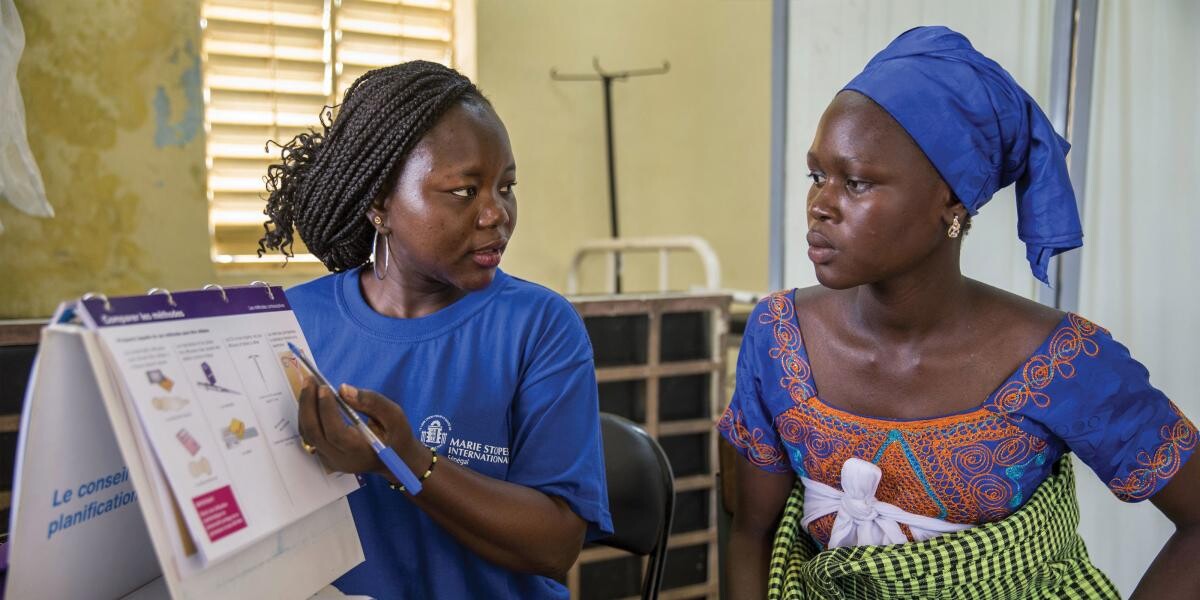Reproductive health and family planning methods are pivotal aspects of public health that profoundly impact the well-being of individuals, families, and communities. The ability to choose the right family planning method tailored to individual needs is instrumental in achieving a healthier, more prosperous community.
As of 2022, the usage of family planning methods varies globally, with an estimated 58.7% of married or in-union women of reproductive age using modern contraceptive methods (WHO 2023). There are several methods of contraception available to individuals and couples. Birth control pills and condoms are some of the most commonly used methods. Long-acting reversible contraceptives, such as intrauterine devices (IUDs) and implants, have become more popular due to their high effectiveness.
Some people prefer natural methods, such as fertility awareness-based methods, while others choose permanent methods like sterilization for long-term solutions. Having access to a wide range of options ensures that individuals and couples can choose the method that best fits their health, lifestyle, and reproductive goals. This contributes to healthier and more empowered communities.
Reproductive health family planning is more than just a method to prevent unintended pregnancies; it is a catalyst for numerous benefits that reverberate throughout communities which include.
- Healthier Maternal and Child Outcomes
Effective family planning enables individuals and couples to make informed choices about when to have children and how many to have. This helps to promote better health outcomes for both mothers and children by reducing the risk of high-risk and closely spaced pregnancies, which in turn significantly lowers the risk of maternal mortality. Ultimately, this benefits the overall health of the community.
- Socioeconomic Advancements
Family planning allows couples to prioritize education, careers, and overall well-being before starting a family, leading to greater financial stability, reduced poverty rates, and socioeconomic advancements.
- Gender Equality and Empowerment
Accessible family planning is crucial in fostering gender equality as it empowers women and girls to take control of their reproductive health. It enables women to complete their education, participate in the workforce, and make informed decisions about their lives, which in turn strengthens communities as a whole.
- Population Growth Management
In regions with high birth rates, family planning is crucial for managing population growth. Controlled population growth can relieve pressure on resources and infrastructure, promoting sustainability and environmental well-being.
- Reduction of Unintended Pregnancies
Effective family planning can prevent unintended pregnancies and related hardships.
To make informed choices about family planning, individuals and couples should be familiar with the diverse range of family planning methods as classified below;
Contraceptive Methods
- Barrier Methods: These include condoms and diaphragms, providing physical barriers to prevent sperm from reaching the egg.
- Hormonal Methods: Birth control pills, patches, and injections are hormonal methods that regulate ovulation and the menstrual cycle.
- Long-Acting Reversible Contraceptives (LARCs): Intrauterine devices (IUDs) and implants are highly effective, long-term contraceptive options.
- Emergency Contraception: These are backup methods used after unprotected intercourse to prevent pregnancy.
Natural Methods
- Fertility Awareness-Based Methods: These involve tracking menstrual cycles and ovulation to identify fertile and non-fertile days.
- Withdrawal Method: Known as the “pulling out” method, this relies on a partner’s ability to withdraw before ejaculation.
Permanent Methods
- Sterilization: For women, tubal ligation is a surgical procedure to block or cut the fallopian tubes, while vasectomy offers a permanent solution for men.
Lactational Amenorrhea Method (LAM)
- LAM relies on exclusive breastfeeding to prevent pregnancy during the postpartum period.
Therefore, selecting the most appropriate family planning method necessitates careful consideration of numerous factors which include the following
- Health Considerations: Consult a healthcare provider to evaluate the safety and suitability of a method based on individual health conditions and medical history.
- Effectiveness: Evaluate the effectiveness of each method and consider factors such as user compliance and potential side effects.
- Lifestyle and Cultural Factors: Personal preferences, religious beliefs, and cultural norms can play a significant role in method selection. Choose a method that aligns with your values and lifestyle.
- Long-Term vs. Short-Term: Decide whether you prefer a temporary or permanent solution. Temporary methods offer flexibility, while permanent methods are irreversible.
- Accessibility: Consider the availability and accessibility of the chosen method in your community, as access can greatly influence the choice.
Hence, reproductive health family planning methods are cornerstones of healthier and more prosperous communities. Empowering individuals and couples to make informed choices regarding their family planning significantly contributes to the overall well-being of the community. By fostering awareness, ensuring access to a wide array of methods, and encouraging informed decision-making, communities can pave the way for a brighter and healthier future for all, wherein individuals have the opportunity to realize their aspirations and communities thrive in health and prosperity.
If you would like your article/opinion to be published on Uganda’s most authoritative news platform, send your submission on: [email protected]. You can also follow DailyExpress on WhatsApp and on Twitter (X) for realtime updates.



